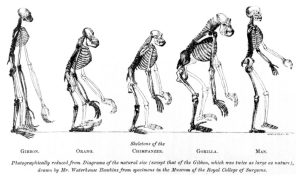Sociology of Deviance:
The sociology of deviance explores how societies define, respond to, and manage behaviors, beliefs, or conditions that deviate from established norms. It examines both formal (e.g., criminal acts) and informal (e.g., nonconformity to social customs) instances of deviance, recognizing that what’s considered deviant can vary across cultures and time periods.
Here’s a more detailed breakdown:
Core Concepts:
- Deviance: Any behavior, belief, or condition that violates social norms, which are the shared expectations and rules within a group or society.
Norms:
These can be formal (laws) or informal (customs, social etiquette).
Social Control:
The mechanisms used to encourage conformity to norms and discourage deviance.
Relativity of Deviance:
What is considered deviant can change based on cultural context, time period, and social group.
Key Sociological Perspectives on Deviance:
- Functionalism: This perspective views deviance as having a function in society, such as clarifying norms, strengthening group solidarity, and promoting social change. For example, by reacting to crime, society reaffirms its commitment to the law.
Conflict Theory:
This perspective emphasizes how power dynamics and social inequalities influence the definition and consequences of deviance. Those in power may label certain behaviors as deviant to maintain their status and control.
Symbolic Interactionism:
This perspective focuses on how social interactions shape our understanding of deviance and how individuals internalize deviant labels.
- Labeling Theory: This theory suggests that being labeled as deviant can lead to a self-fulfilling prophecy, where individuals internalize the label and engage in further deviant behavior.
Differential Association: This theory proposes that deviance is learned through interactions with others who engage in deviant behavior.
Examples of Deviance:
- Formal Deviance: Violations of laws, such as robbery, theft, rape, murder, and assault.
Informal Deviance: Violations of unwritten social norms, such as wearing inappropriate clothing, using offensive language, or acting disrespectfully. Positive Deviance: Behaviors that exceed normal expectations and contribute positively to society, such as acts of altruism, heroism, or innovation.
Studying Deviance:
Sociologists study deviance by:
- Examining the social factors that contribute to deviant behavior.
Analyzing how societies respond to and control deviant behavior. Exploring the social construction of deviance and its impact on individuals and society.
By studying deviance, sociologists gain insights into the nature of social norms, the dynamics of social control, and the ways in which societies maintain order while also experiencing change






























Post Comment